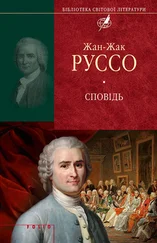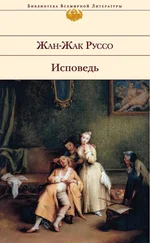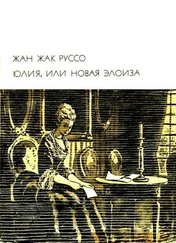Жан-Жак Руссо - Emile
Здесь есть возможность читать онлайн «Жан-Жак Руссо - Emile» — ознакомительный отрывок электронной книги совершенно бесплатно, а после прочтения отрывка купить полную версию. В некоторых случаях можно слушать аудио, скачать через торрент в формате fb2 и присутствует краткое содержание. Жанр: foreign_antique, literature_18, foreign_edu, на английском языке. Описание произведения, (предисловие) а так же отзывы посетителей доступны на портале библиотеки ЛибКат.
- Название:Emile
- Автор:
- Жанр:
- Год:неизвестен
- ISBN:нет данных
- Рейтинг книги:4 / 5. Голосов: 1
-
Избранное:Добавить в избранное
- Отзывы:
-
Ваша оценка:
- 80
- 1
- 2
- 3
- 4
- 5
Emile: краткое содержание, описание и аннотация
Предлагаем к чтению аннотацию, описание, краткое содержание или предисловие (зависит от того, что написал сам автор книги «Emile»). Если вы не нашли необходимую информацию о книге — напишите в комментариях, мы постараемся отыскать её.
Emile — читать онлайн ознакомительный отрывок
Ниже представлен текст книги, разбитый по страницам. Система сохранения места последней прочитанной страницы, позволяет с удобством читать онлайн бесплатно книгу «Emile», без необходимости каждый раз заново искать на чём Вы остановились. Поставьте закладку, и сможете в любой момент перейти на страницу, на которой закончили чтение.
Интервал:
Закладка:
Jean-Jacques Rousseau
Emile
BOOK I
God makes all things good; man meddles with them and they become evil. He forces one soil to yield the products of another, one tree to bear another's fruit. He confuses and confounds time, place, and natural conditions. He mutilates his dog, his horse, and his slave. He destroys and defaces all things; he loves all that is deformed and monstrous; he will have nothing as nature made it, not even man himself, who must learn his paces like a saddle-horse, and be shaped to his master's taste like the trees in his garden. Yet things would be worse without this education, and mankind cannot be made by halves. Under existing conditions a man left to himself from birth would be more of a monster than the rest. Prejudice, authority, necessity, example, all the social conditions into which we are plunged, would stifle nature in him and put nothing in her place. She would be like a sapling chance sown in the midst of the highway, bent hither and thither and soon crushed by the passers-by.
Tender, anxious mother, [Footnote: The earliest education is most important and it undoubtedly is woman's work. If the author of nature had meant to assign it to men he would have given them milk to feed the child. Address your treatises on education to the women, for not only are they able to watch over it more closely than men, not only is their influence always predominant in education, its success concerns them more nearly, for most widows are at the mercy of their children, who show them very plainly whether their education was good or bad. The laws, always more concerned about property than about people, since their object is not virtue but peace, the laws give too little authority to the mother. Yet her position is more certain than that of the father, her duties are more trying; the right ordering of the family depends more upon her, and she is usually fonder of her children. There are occasions when a son may be excused for lack of respect for his father, but if a child could be so unnatural as to fail in respect for the mother who bore him and nursed him at her breast, who for so many years devoted herself to his care, such a monstrous wretch should be smothered at once as unworthy to live. You say mothers spoil their children, and no doubt that is wrong, but it is worse to deprave them as you do. The mother wants her child to be happy now. She is right, and if her method is wrong, she must be taught a better. Ambition, avarice, tyranny, the mistaken foresight of fathers, their neglect, their harshness, are a hundredfold more harmful to the child than the blind affection of the mother. Moreover, I must explain what I mean by a mother and that explanation follows.] I appeal to you. You can remove this young tree from the highway and shield it from the crushing force of social conventions. Tend and water it ere it dies. One day its fruit will reward your care. From the outset raise a wall round your child's soul; another may sketch the plan, you alone should carry it into execution.
Plants are fashioned by cultivation, man by education. If a man were born tall and strong, his size and strength would be of no good to him till he had learnt to use them; they would even harm him by preventing others from coming to his aid; [Footnote: Like them in externals, but without speech and without the ideas which are expressed by speech, he would be unable to make his wants known, while there would be nothing in his appearance to suggest that he needed their help.] left to himself he would die of want before he knew his needs. We lament the helplessness of infancy; we fail to perceive that the race would have perished had not man begun by being a child.
We are born weak, we need strength; helpless, we need aid; foolish, we need reason. All that we lack at birth, all that we need when we come to man's estate, is the gift of education.
This education comes to us from nature, from men, or from things. The inner growth of our organs and faculties is the education of nature, the use we learn to make of this growth is the education of men, what we gain by our experience of our surroundings is the education of things.
Thus we are each taught by three masters. If their teaching conflicts, the scholar is ill-educated and will never be at peace with himself; if their teaching agrees, he goes straight to his goal, he lives at peace with himself, he is well-educated.
Now of these three factors in education nature is wholly beyond our control, things are only partly in our power; the education of men is the only one controlled by us; and even here our power is largely illusory, for who can hope to direct every word and deed of all with whom the child has to do.
Viewed as an art, the success of education is almost impossible, since the essential conditions of success are beyond our control. Our efforts may bring us within sight of the goal, but fortune must favour us if we are to reach it.
What is this goal? As we have just shown, it is the goal of nature. Since all three modes of education must work together, the two that we can control must follow the lead of that which is beyond our control. Perhaps this word Nature has too vague a meaning. Let us try to define it.
Nature, we are told, is merely habit. What does that mean? Are there not habits formed under compulsion, habits which never stifle nature? Such, for example, are the habits of plants trained horizontally. The plant keeps its artificial shape, but the sap has not changed its course, and any new growth the plant may make will be vertical. It is the same with a man's disposition; while the conditions remain the same, habits, even the least natural of them, hold good; but change the conditions, habits vanish, nature reasserts herself. Education itself is but habit, for are there not people who forget or lose their education and others who keep it? Whence comes this difference? If the term nature is to be restricted to habits conformable to nature we need say no more.
We are born sensitive and from our birth onwards we are affected in various ways by our environment. As soon as we become conscious of our sensations we tend to seek or shun the things that cause them, at first because they are pleasant or unpleasant, then because they suit us or not, and at last because of judgments formed by means of the ideas of happiness and goodness which reason gives us. These tendencies gain strength and permanence with the growth of reason, but hindered by our habits they are more or less warped by our prejudices. Before this change they are what I call Nature within us.
Everything should therefore be brought into harmony with these natural tendencies, and that might well be if our three modes of education merely differed from one another; but what can be done when they conflict, when instead of training man for himself you try to train him for others? Harmony becomes impossible. Forced to combat either nature or society, you must make your choice between the man and the citizen, you cannot train both.
The smaller social group, firmly united in itself and dwelling apart from others, tends to withdraw itself from the larger society. Every patriot hates foreigners; they are only men, and nothing to him.[Footnote: Thus the wars of republics are more cruel than those of monarchies. But if the wars of kings are less cruel, their peace is terrible; better be their foe than their subject.] This defect is inevitable, but of little importance. The great thing is to be kind to our neighbours. Among strangers the Spartan was selfish, grasping, and unjust, but unselfishness, justice, and harmony ruled his home life. Distrust those cosmopolitans who search out remote duties in their books and neglect those that lie nearest. Such philosophers will love the Tartars to avoid loving their neighbour.
Читать дальшеИнтервал:
Закладка:
Похожие книги на «Emile»
Представляем Вашему вниманию похожие книги на «Emile» списком для выбора. Мы отобрали схожую по названию и смыслу литературу в надежде предоставить читателям больше вариантов отыскать новые, интересные, ещё непрочитанные произведения.
Обсуждение, отзывы о книге «Emile» и просто собственные мнения читателей. Оставьте ваши комментарии, напишите, что Вы думаете о произведении, его смысле или главных героях. Укажите что конкретно понравилось, а что нет, и почему Вы так считаете.












